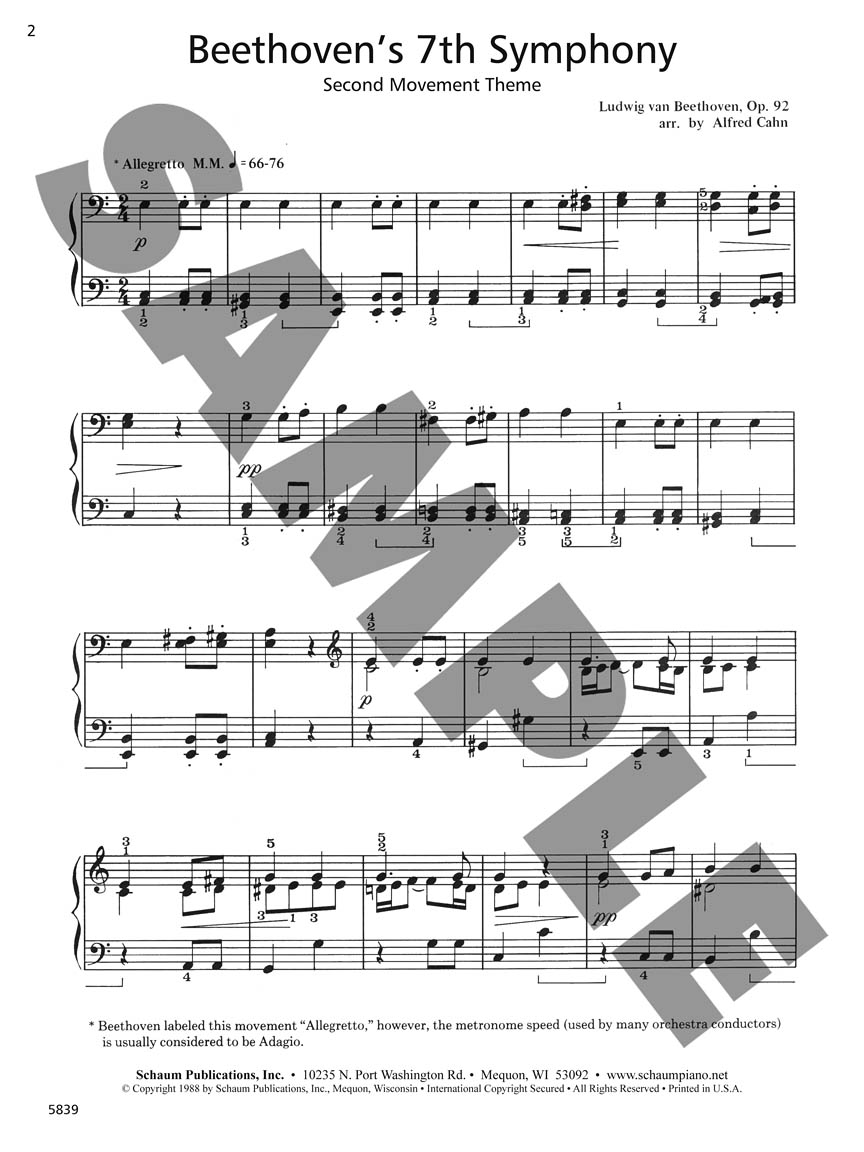

Every part is based on either the main theme, the “Seid umschlungen” theme, or some combination of the two themes. However, this final movement in the symphony is different from an independent symphony due to its thematic unity. Within the fourth movement are four movements. 9 is famous for its choral finale, which has awed many listeners as somewhat rambling. His movement is written in a loose variation form, with each of the two variations dividing the basic beat to produce a more elaborate melodic configuration than what went before – the first is in 4/4 time and the second is in 12/8 time.Ī virtuosic horn solo assigned to the fourth player is also notable in the third movement. The third movement has the deeply felt and lyrical slow movement, in B-flat major. The second movement is noteworthy for its timpani solos and propulsive rhythm. The theme in the opening echoes the theme of the first movement. 92 Beethoven’s first sketches for this symphony date from late 1811 the work was completed on April 13, 1812, and first performed on December 8, 1813, in Vienna, under the composer’s direction. A scherzo, the second movement is in D minor. Ludwig van Beethoven Born December 16, 1770, Bonn, Germany. A striking moment here is the commencement of the recapitulation section, which as opposed to literally repeating the pianissimo opening bars in D minor, it shifts to fortissimo D major, a key change which surprises many listeners, ironically, as expressing awe or terror. In general, the mood is stormy and bleak. The symphony’s first movement is in sonata form, which follows a formal model that had guided the artist throughout his career. Beethoven’s arrangement adopts a somewhat unusual Classical pattern, with the scherzo movement in second position, instead of the normal third position. 9 is in four movements: the first movement is marked as allegro ma non troppo, un poco maestoso the second movement as molto vivace, the third movement is marked as adagio molto e cantabile and the fourth movement as presto/recitative. 9 is truly is among the greatest achievements of the human spirit. TIDAL is the first global music streaming service with high fidelity sound, hi-def video quality. 5, the pastoral reflection in Symphony No. Other Albums by American Symphony Orchestra, Leon Botstein. 1, the worrying “fate knocking on the door” opening of Symphony No. The ethereal, monumental, and triumphant emotion reflected in the Ninth Symphony is surprising given the energetic humor of Symphony No. It is interesting in that it breaks with time-honored distinctions and conventions and to give precedence to Beethoven’s expressive desires and needs and desires. It is revolutionary on many levels: rhythmic, melodic, harmonic, formal, emotional, and self-expressive. The absolute emotional power in this symphony is readily understood and the revolutionary compositional ideas that make up the symphony are easily appreciated. Here, he radiated a supreme directness that makes the symphony totally accessible. 9, as in his other symphonies, an exceptional gift for communication. Stritzler-Levine joined the Bard faculty in 1964 and devoted 56 years of continuous service to the College.Order custom essay Ludwig van Beethoven’s Symphony No.

This concert is dedicated to the memory of Stuart Stritzler-Levine, professor emeritus of psychology and emeritus dean of Bard College, who passed away on May 1, 2020. The program features his beloved 5th and 7th symphonies, as well as his Triple Concerto for violin, cello, and piano. The Symphony begins with a long and profound introduction, before kicking into kinetically energized music, which characterizes the entire work and has. The Orchestra NowLeon Botstein conducts the first of two concerts celebrating Ludwig van Beethoven. Beethoven conducted and all of the music was much admired, though to the composer’s irritation the Seventh Symphony was referred to as a companion piece to Wellington’s Victory.The Orchestra Now and Bard College Conservatory of Music Present Belated Beethoven Birthday Celebration The Orchestra Now and the Bard College Conservatory Orchestra present two concerts celebrating one of the greatest composers of all time, Ludwig van Beethoven, after the pandemic shut down many of the concerts planned last year for the 250th anniversary of his birth.īoth concerts will be introduced by Congolese chemist and novelist Emmanuel Dongala, author of the 2017 historical novel The Bridgetower Sonata.


 0 kommentar(er)
0 kommentar(er)
